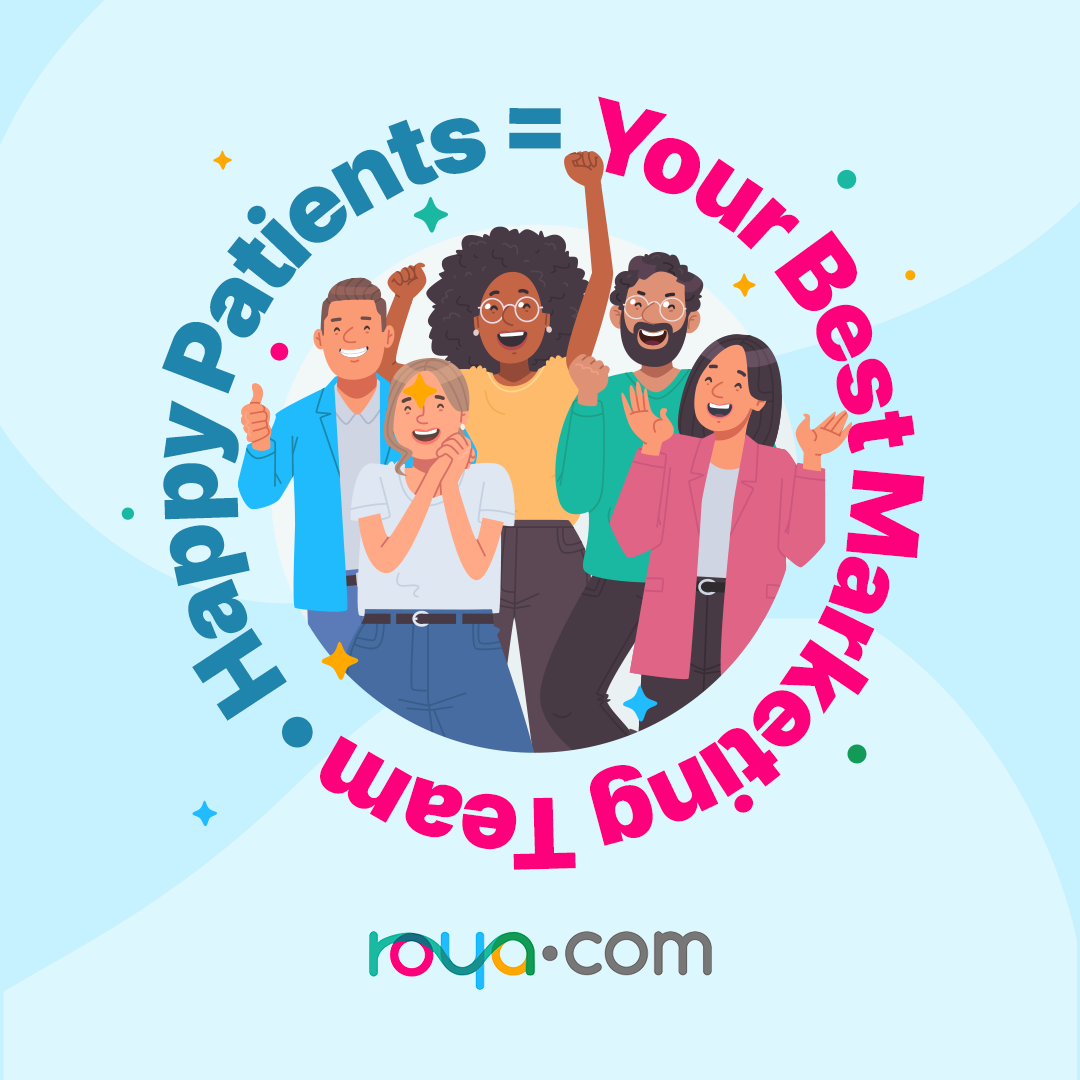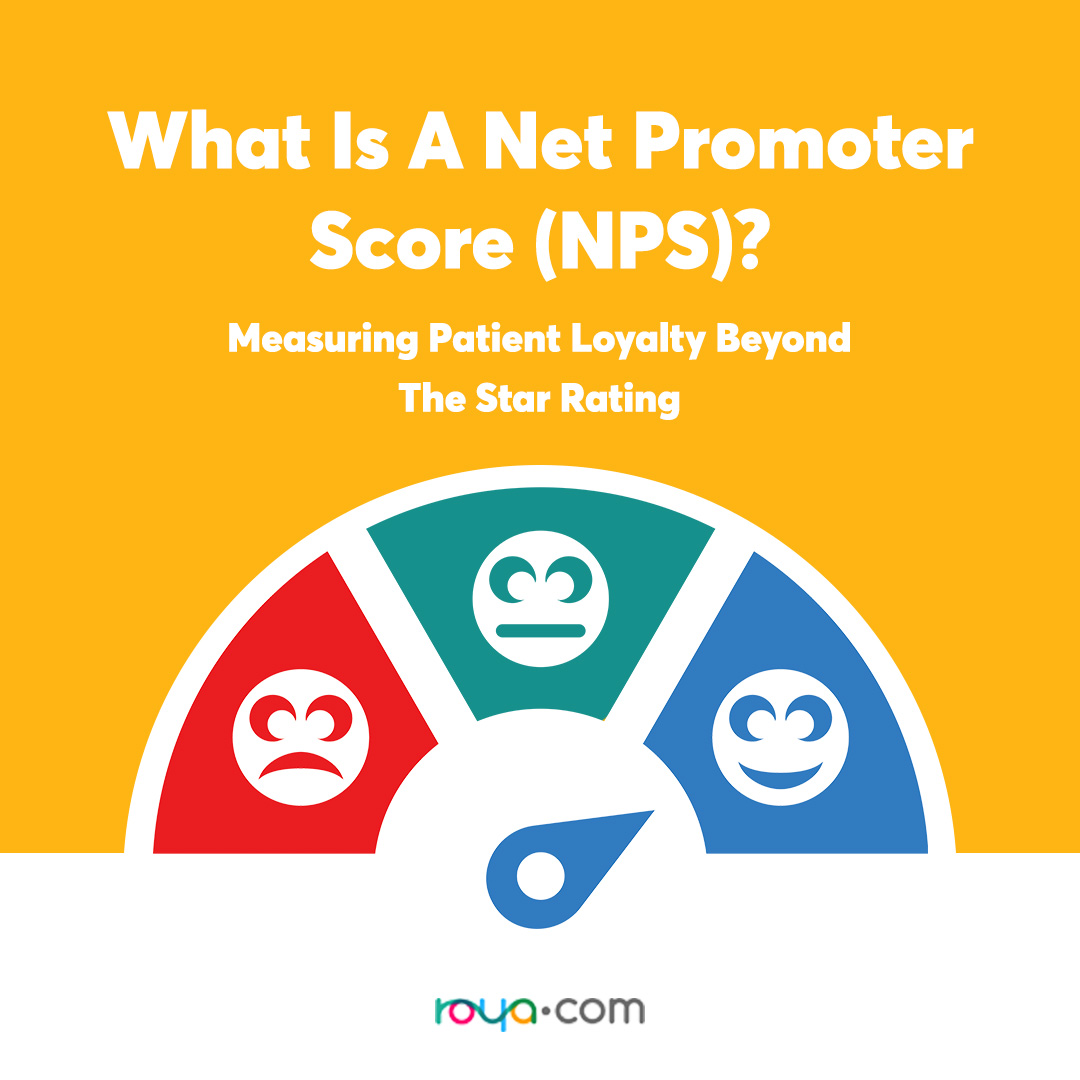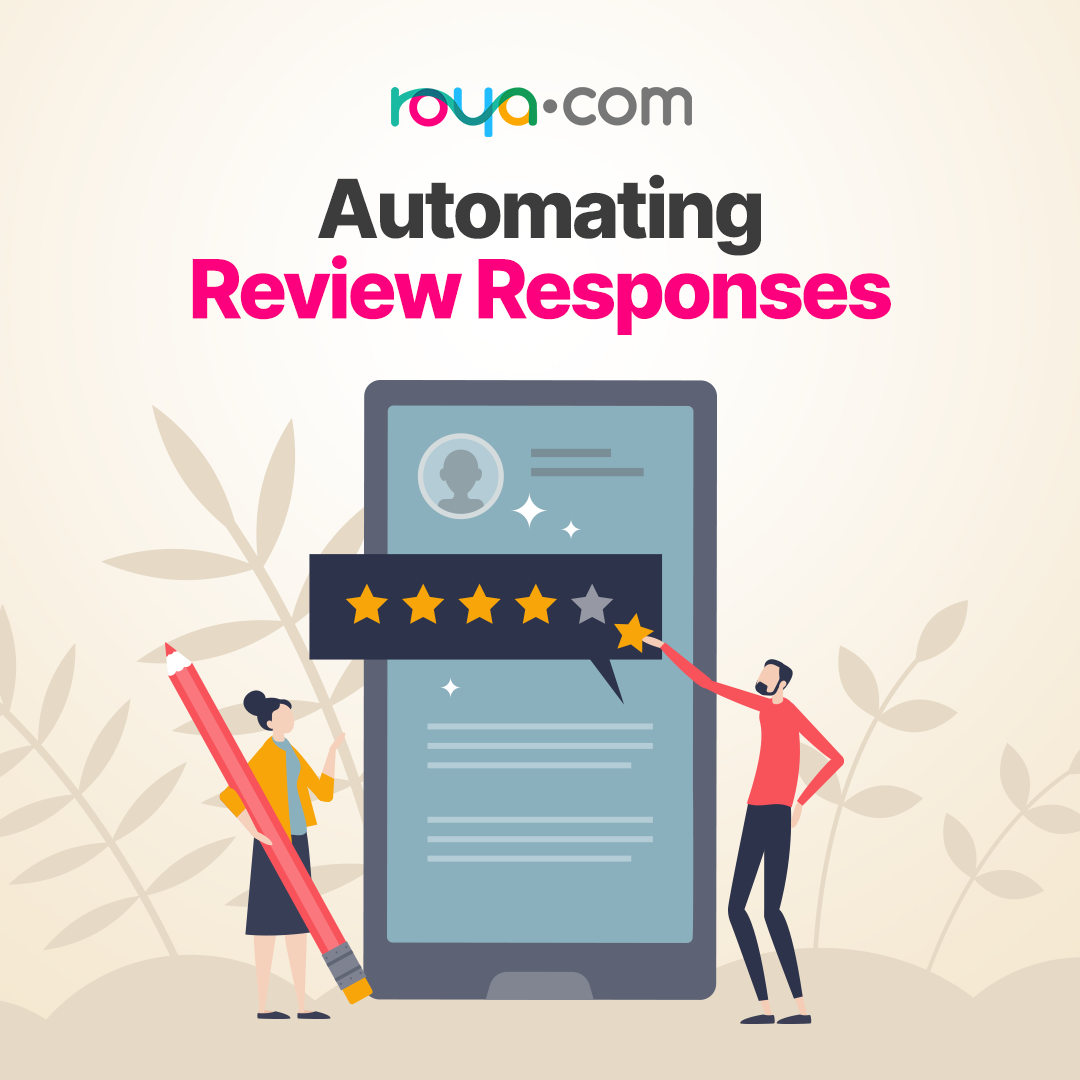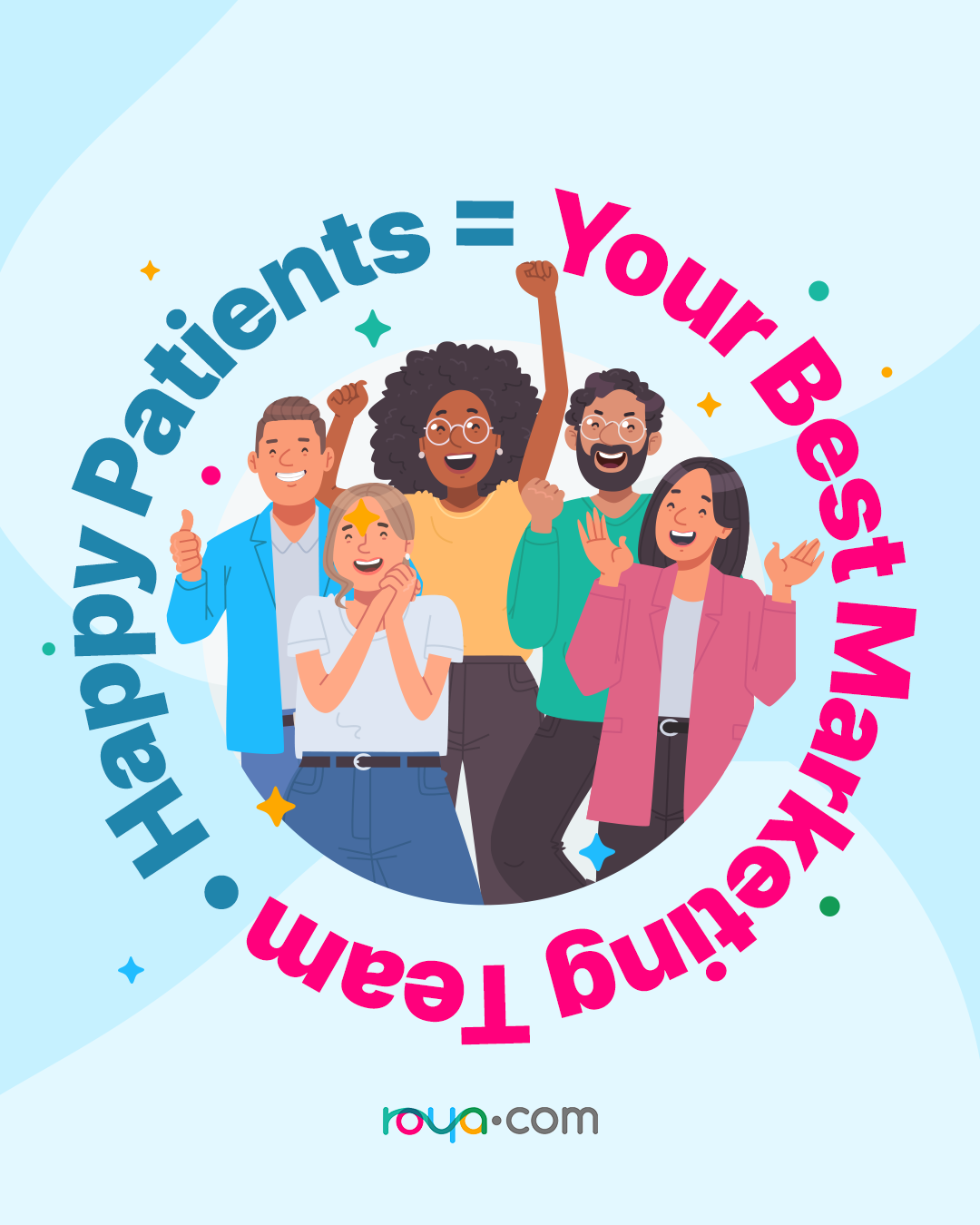
Running a local business isn't just about offering exceptional services; it's about creating a community that believes in your brand. Imagine transforming your satisfied patients into your most powerful advocates, effectively turning them into a dedicated marketing team. This approach not only saves resources but also elevates your brand in ways traditional advertising struggles to achieve. Ever wonder why some businesses effortlessly attract new customers while others struggle with lead generation? This guide breaks down how you can utilize referral marketing strategies to grow your business.
Key Takeaways
Understand how referral marketing works to transform loyal customers into brand advocates
Referral Marketing 101: Discover cost-effective strategies to boost customer acquisition through referrals
Learn how technology can enhance referral programs, making them more efficient
The Power of Referral Marketing
The power of word-of-mouth is undefeated. Referral marketing turns happy customers into vocal brand advocates. It's no longer enough to rely solely on traditional advertising; businesses that harness the trust and influence of their happy clients are a step ahead of the market.
Evolution of Referral Marketing
Referral marketing has undergone a significant transformation with the rise of new digital platforms. Gone are the days when word-of-mouth was limited to face-to-face conversations. Modern businesses have shifted from traditional methods to automated referral systems that capitalize on the connectivity and reach of the internet. This evolution means you can now track and reward referrals seamlessly, making it easier than ever to manage a successful referral marketing program.
The paradigm shift from traditional advertising to digital referral marketing offers businesses numerous advantages. By leveraging existing social networks, companies can amplify their reach and engage with potential customers in more personal and impactful ways. This approach not only enhances marketing efforts but also builds a robust community around your brand. So, if you're still relying entirely on conventional marketing channels, it's time to pivot towards referral marketing strategies.
Understanding the Benefits of a Referral Marketing
Program
Referral marketing isn't just a trend; it's a strategic approach that offers numerous benefits for businesses of all sizes.
Cost-Effectiveness of a Referral Marketing Program
Compared to traditional advertising, referral programs stand out for their cost-effectiveness. This reduction in cost per acquisition is a major advantage, especially for small businesses with limited resources.
Investing in referral programs offers a high return on investment over time. Instead of spending exorbitant amounts on advertising, businesses can channel resources into creating enticing referral incentives and rewards. This strategy not only cuts costs but also builds a loyal customer base that fuels ongoing growth. As your referral network expands, you'll find that the savings can be redirected toward other essential aspects of your business.
Enhanced Customer Trust and Brand Loyalty
Trust is a currency, and referrals are the key to earning it. Customers naturally trust recommendations from friends and family more than any advertisement. By fostering a sense of community and belonging, referrals strengthen trust in your brand. This bond often translates into long-term customer relationships that go beyond transactional interactions.
Loyal customers are more than just repeat buyers; they become advocates who actively promote your business. By implementing a well-thought-out loyalty program, you can motivate customers to continue referring others. The trust built through referrals is a powerful catalyst for sustained growth and customer loyalty. So, don't underestimate the impact of a referral; it's a stepping stone toward a thriving, loyal customer base.

Proven Referral Marketing Strategies for Local Businesses
Implementing a successful referral marketing strategy requires creativity and a deep understanding of your audience. By crafting compelling offers and building strong relationships, businesses can harness the full potential of referral marketing.
Create a Compelling Referral Marketing Offer
A compelling referral offer is the linchpin of any successful program. It's what motivates customers to actively participate and spread the word. Whether it's discounts, exclusive access, or special incentives, the offer should resonate with your audience.
Clarity and simplicity are key. The more straightforward your offer, the higher the participation rates. By offering exclusive incentives and clearly communicating the benefits, you'll drive more successful referrals. So, take the time to design an incentive structure that speaks to your customers' desires and watch your referral numbers soar.
Developing Loyal Customers
Strong patient relationships are the foundation of effective referrals. Personal connections often lead to genuine recommendations, making them invaluable assets to your marketing strategy. By consistently engaging with patients, you maintain their interest in your offerings and encourage them to refer friends and family.
Building trust with patients is crucial. When they feel valued and appreciated, they're more likely to become loyal customers who advocate for your brand. Regular communication and personalized interactions can go a long way in strengthening these relationships and enhancing your referral process.
How to Craft an Effective Referral Program That
Engages Patients
Designing an effective referral marketing program requires understanding your audience and tailoring your approach to their needs. By identifying key motivators and simplifying the process, you can create a program that truly engages patients.
Identify Key Incentives for Patients
Understanding what drives your patients is crucial to the success of your referral program. By identifying incentives that resonate with your patient base, you can craft a program that aligns with their interests. Surveys and feedback are invaluable tools for pinpointing these motivators and ensuring your program is effective.
Aligning motivators with patient interests enhances engagement and participation. Whether it's a discount, a special reward, or another form of incentive, the key is to offer something that genuinely excites your patients. By doing so, you'll create a referral program that thrives on active participation.
Design an Easy-to-Use Referral Process
Simplicity is the secret sauce to a successful referral process. An easy-to-use system reduces barriers to participation and encourages more referrals. By streamlining your referral process, you minimize patient effort and maximize results.
Clear instructions and user-friendly interfaces are essential. When patients understand how to refer others and feel confident in the process, they're more likely to participate. Simplifying the referral process leads to higher conversion rates and a more successful program overall.
Personalize Communication for Better Engagement
Personalized communication makes patients feel valued and appreciated. Tailored messages can increase interest in joining your referral programs. By using personalized follow-ups and targeted communication, you enhance the connection between your business and your patients.
Personalization fosters a deeper relationship, turning patients into loyal advocates. When they feel understood and appreciated, they're more likely to engage with your referral program. So, make personalization a key component of your referral strategy for better engagement and results.

Encouraging Online Reviews & Word of Mouth Examples
While traditional referrals play a key role in building trust and expanding your network, online reviews offer a powerful extension of that word-of-mouth effect. Encouraging your satisfied patients to share their experiences publicly can significantly boost your online visibility, strengthen your reputation, and attract new patients organically, all without relying on paid advertising.
Why Online Reviews Matter More Than Ever
Online reviews are today’s word-of-mouth in action. Potential patients frequently turn to platforms like Google, Yelp, and Healthgrades before choosing a provider. A glowing review from a real patient can often carry more weight than any polished marketing message. When patients leave honest, positive reviews, they not only validate your services but also amplify your credibility in the eyes of those doing their homework before booking an appointment.
Reviews also influence local search rankings, making it easier for nearby prospects to discover your practice. Simply put, the more quality reviews you collect, the more visible and trustworthy your business becomes.
Make It Easy and Rewarding to Leave a Review
The best time to ask for a review is when a patient is at peak satisfaction, usually right after a successful appointment or treatment. Use automated follow-ups, personalized thank-you emails, or text reminders with direct links to your preferred review platforms to make the process effortless.
Although most review platforms prohibit incentivizing reviews directly, you can build goodwill by showing appreciation. A heartfelt thank-you, social media shout-out (with permission), or entry into a general giveaway can motivate patients to share their thoughts while staying compliant.
Integrate Reviews Into Your Referral Strategies
Online reviews and referrals don’t have to exist separately. They can reinforce each other. When patients refer someone, that person often looks up your reviews before taking the next step. A strong portfolio of positive feedback can seal the deal, increasing the chances that a referred lead becomes a loyal patient.
Additionally, encourage reviewers to mention what specifically impressed them, whether it’s your personalized care, quick response time, or modern technology. These details help paint a compelling picture for potential new patients and support your overall referral marketing strategy with authenticity.
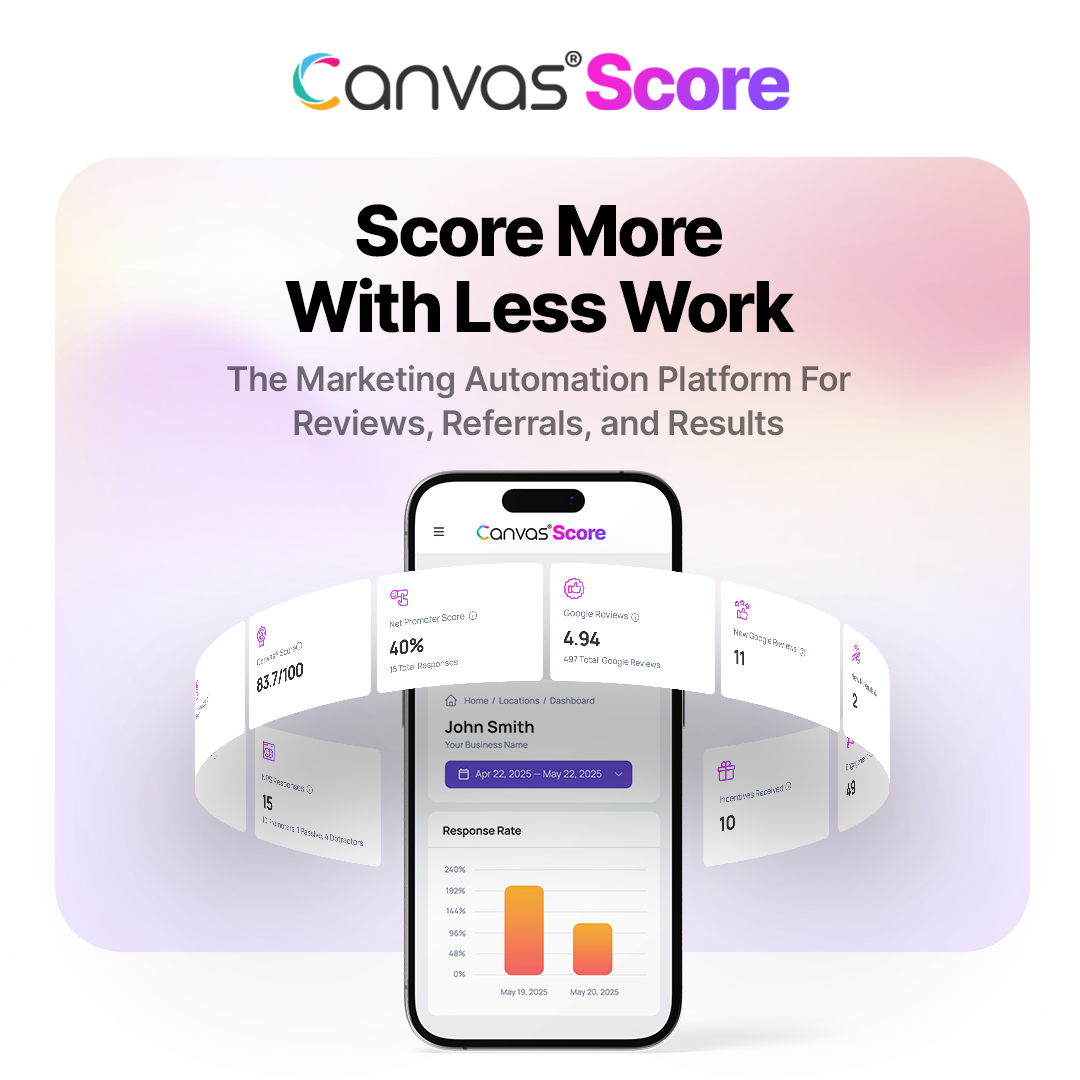
Leveraging Technology to Streamline Your Referral Marketing Efforts
Incorporating technology into your referral marketing efforts can streamline processes and enhance efficiency. By integrating automation tools and utilizing data analytics, businesses can improve their strategies and achieve better results.
Integrate Automation Tools for Efficiency
Automation tools are game-changers for managing and tracking referral programs. They streamline processes, saving time and resources while ensuring consistent communication with referrers. By automating referral reward distribution, businesses can focus on scaling their programs and achieving greater success.
Efficiency gained through automation leads to a more scalable program. By integrating marketing tools like Canvas Score, businesses can enhance the effectiveness of their referral campaigns and drive better results. Check out Canvas Score for more information on how this platform can transform your referral marketing strategy.
Utilizing Data Analytics to Test Referral Marketing Examples
Data analytics offers invaluable insights into referral marketing program performance. By analyzing performance data, businesses can refine their strategies and identify areas for improvement. This data-driven approach ensures that referral programs remain effective and responsive to changing market conditions.
Continuous analysis helps businesses adapt their strategies to achieve better results. By utilizing data analytics, you can make informed decisions that optimize your referral marketing efforts. This strategic approach leads to more successful referral outcomes and sustained business growth.
Conclusion
Referral marketing is a powerful tool that can transform your business by leveraging the trust and influence of your satisfied patients. By understanding the benefits and implementing proven strategies, you can optimize your referral marketing efforts and achieve sustainable growth. So, what are you waiting for? Start transforming your happy patients into your best marketing team today.
Frequently Asked Questions
What is a referral marketing strategy?
A referral marketing strategy leverages satisfied customers to promote your services to others. By encouraging current patients to recommend your practice to friends and family, you create a trusted network of endorsements. This strategy can lead to higher credibility and increased patient acquisition. Effective referral programs often include incentives for both the referrer and the new patient, creating a win-win situation. Utilizing your happy patients as advocates not only strengthens your community presence but also significantly reduces marketing costs.
What are the 4 key marketing strategies?
The four key marketing strategies consist of product, price, place, and promotion; collectively known as the marketing mix. Product strategy focuses on what you're offering and its benefits. Price strategy involves setting a competitive price point. Place strategy ensures your services are accessible to your target audience. Promotion strategy encompasses how you communicate your offerings to potential clients, including advertising and referrals. Implementing these strategies cohesively ensures comprehensive market reach and successful patient engagement.
What are the three types of referrals?
There are three primary types of referrals: direct, implied, and tangible. Direct referrals occur when a patient explicitly recommends your services to someone else. Implied referrals happen when your work or reputation naturally prompts others to inquire about your services. Tangible referrals involve a physical or digital medium, such as a business card or referral link, given to potential patients. Understanding these types helps in tailoring your referral strategy to maximize effectiveness and reach.
What are the four key elements of making a referral?
The four key elements of making a referral include trust, timing, reward, and follow-up. Trust involves ensuring that the referrer believes in your services. Timing refers to identifying the right moment to ask for a referral. Reward provides an incentive for the referrer, often a discount or gift. Follow-up ensures that the referrer feels appreciated and informed about the outcome. Mastering these elements can transform your patients into enthusiastic advocates for your practice.

